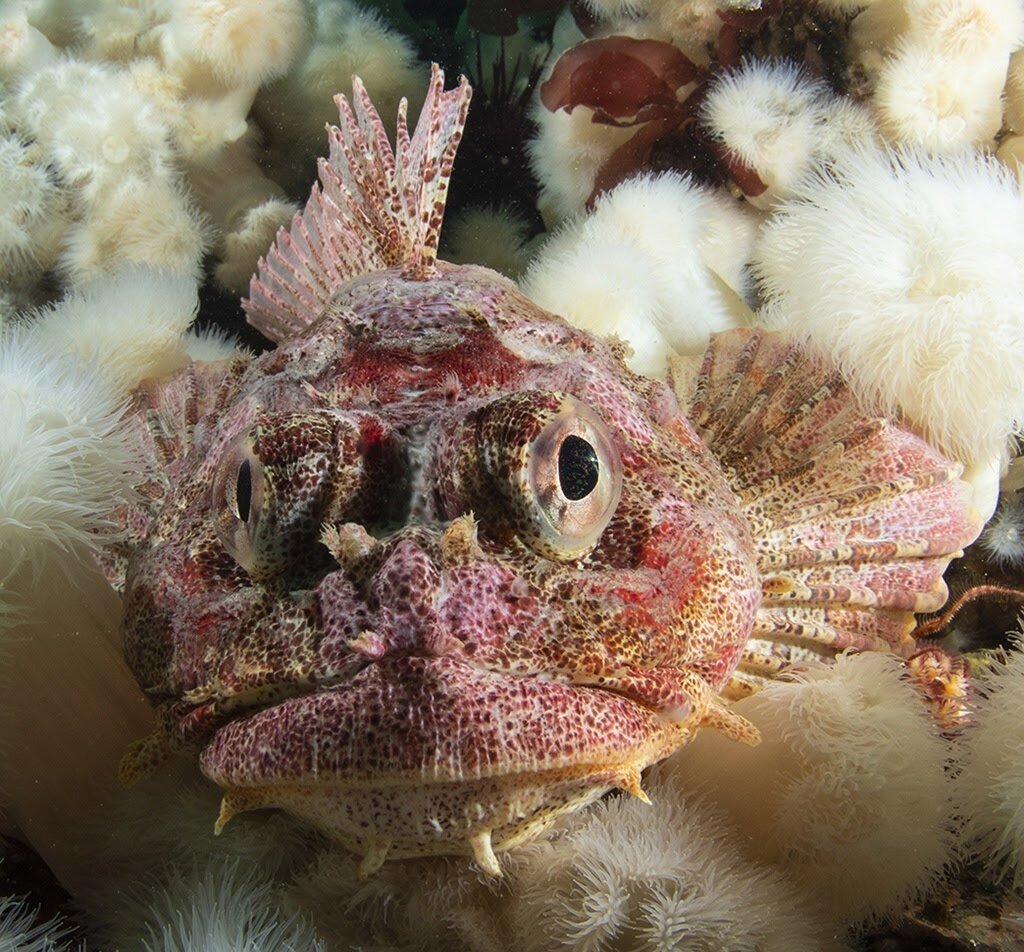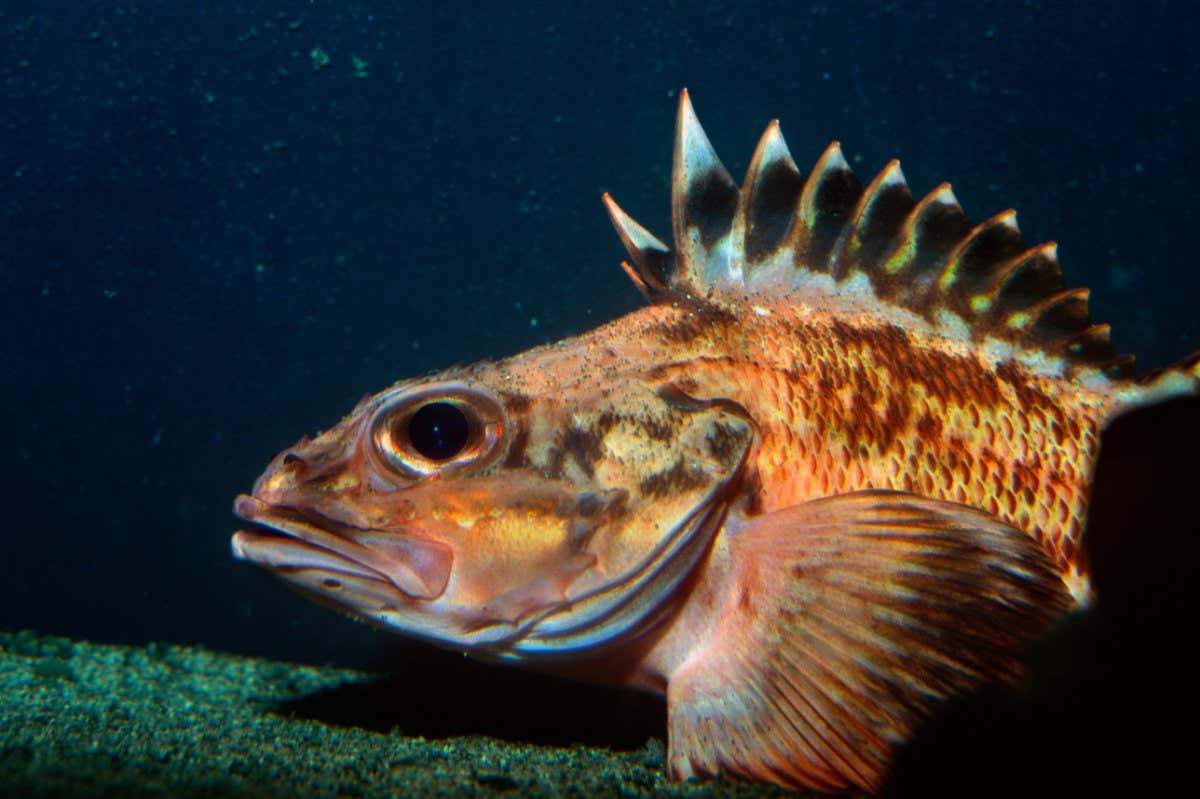Introduction To Rock Fish

Rock fish are a diverse group of fish found in the marine environment. With over 100 species, they come in various sizes, colors, and shapes, making them a fascinating subject of study. These fish are known for their longevity, with some individuals living up to 200 years! Rock fish are distributed throughout many saltwater areas, including Alaskas waters. They have a slow growth rate and reach maturity at a later stage in life. Rock fish play an important role in the marine ecosystem and are valued not only for their culinary delights but also for their conservation significance.
What Are Rock Fish: An Overview
Rock fish are a diverse group of fish found in the marine environment. With over 100 species, they come in various sizes, colors, and shapes, making them a fascinating subject of study. These fish are known for their longevity, with some individuals living up to 200 years! Rock fish are distributed throughout many saltwater areas, including Alaska’s waters. They have a slow growth rate and reach maturity at a later stage in life. Rock fish play an important role in the marine ecosystem and are valued not only for their culinary delights but also for their conservation significance.
Different Species Of Rock Fish
Rock fish are a diverse group of fish with over 100 species. Each species varies in size, color, and shape, adding to the intrigue of these fascinating creatures. Some common species include the Yelloweye rockfish, Vermilion rockfish, and Copper rockfish. Each species has distinct characteristics that make them unique. For example, the Yelloweye rockfish is known for its bright yellow eyes, while the Vermilion rockfish has vibrant red-orange coloration. Each species has its own habitat preferences and feeding habits, which contribute to their diversity and ecological roles in the marine ecosystem.
Habitat And Behavior

Rock fish are highly adaptable creatures, found in a variety of ocean habitats around the world. They can be found in rocky reefs, kelp forests, and even deep offshore waters. Their ability to inhabit different areas is due to their excellent camouflage and ability to hide within crevices and cracks in the rocks. In terms of behavior, rock fish are typically solitary creatures, but can also form large schools during feeding or reproductive periods. They are ambush predators, patiently waiting for their prey to pass by before striking with precision and speed. These unique habitat preferences and feeding behaviors contribute to their important ecological roles in the marine ecosystem.
Rock Fish Habitat And Environment
Rock fish are highly adaptable creatures, found in a variety of ocean habitats around the world. They can be found in rocky reefs, kelp forests, and even deep offshore waters. Their ability to inhabit different areas is due to their excellent camouflage and ability to hide within crevices and cracks in the rocks. In these habitats, rock fish find the protection they need from predators and harsh environmental conditions. Additionally, these areas provide abundant food sources, such as small fish, crustaceans, and mollusks. The unique combination of habitat and environmental factors allows rock fish to thrive and play an important role in maintaining the health of marine ecosystems.
Rock Fish Feeding Habits
Rock fish have diverse feeding habits and consume a variety of prey depending on their species and habitat. They are carnivorous predators and primarily feed on smaller fish, crustaceans, and mollusks. They use their excellent vision and advanced sensory system to locate and capture their prey. Some species of rock fish are ambush predators, lying in wait for their prey to come close before striking, while others are active hunters that chase and capture their food. The specific feeding habits of rock fish vary depending on factors such as their size, habitat, and prey availability.
Rock Fish Conservation

Rock Fish Conservation:
Rock fish face numerous challenges that impact their populations, making conservation efforts crucial. Overfishing and habitat destruction, such as bottom trawling and pollution, pose significant threats to rock fish populations. To protect these species, conservation initiatives focus on implementing sustainable fishing practices, establishing marine protected areas, and promoting habitat restoration projects. Additionally, public awareness campaigns and educational programs play a crucial role in engaging communities and fostering a sense of responsibility towards the conservation of rock fish and their habitats. It is essential to address these conservation concerns to ensure the survival and abundance of rock fish in the future.
Challenges Facing Rock Fish Populations
Rock fish populations face several significant challenges that threaten their sustainability. Overfishing has been a major problem, leading to population declines in the past. Additionally, habitat destruction, such as bottom trawling and pollution, has negatively impacted rock fish habitats, affecting their ability to reproduce and find food. Climate change and ocean acidification also pose threats to rock fish populations by altering their environment and food sources. These challenges highlight the importance of conservation efforts to protect and restore rock fish populations for the future.
Conservation Efforts And Initiatives
Conservation efforts and initiatives have been instrumental in protecting and restoring rock fish populations. Measures such as fishing regulations, fishing area closures, and size limits have been implemented to reduce overfishing and enable population recovery. Additionally, conservation organizations and government agencies have worked together to establish marine protected areas and promote sustainable fishing practices. These conservation efforts aim to preserve rock fish habitats, encourage responsible fishing, and ensure the long-term sustainability of rock fish populations. Public awareness campaigns and education programs also play a crucial role in promoting conservation and fostering a greater understanding of the importance of rock fish in the marine ecosystem.
Culinary Delights

Culinary Delights:
When it comes to culinary delights, rock fish is a true treat for seafood lovers. Its delicate and flaky texture, along with its mild and slightly sweet flavor, makes it perfect for a variety of cooking methods. Whether grilled, steamed, baked, or pan-fried, rock fish always delivers a delicious and satisfying meal. It pairs well with a variety of flavors, from zesty citrus and fresh herbs to spicy seasonings. Whether enjoyed on its own or incorporated into dishes like tacos or chowders, rock fish is sure to please even the most discerning palates.
Cooking And Eating Rock Fish
Cooking and Eating Rock Fish:
When it comes to culinary delights, rock fish is a true treat for seafood lovers. Its delicate and flaky texture, along with its mild and slightly sweet flavor, makes it perfect for a variety of cooking methods. Whether grilled, steamed, baked, or pan-fried, rock fish always delivers a delicious and satisfying meal. It pairs well with a variety of flavors, from zesty citrus and fresh herbs to spicy seasonings. Whether enjoyed on its own or incorporated into dishes like tacos or chowders, rock fish is sure to please even the most discerning palates.
Popular Rock Fish Recipes
Rock fish is a versatile seafood that can be cooked in various ways to create delicious dishes. One popular recipe is Grilled Rock Fish, where the fish is marinated in a mixture of olive oil, lemon juice, garlic, and herbs, then grilled to perfection. Another tasty option is Pan-Fried Rock Fish, which involves coating the fish in a seasoned batter and frying it until golden brown. For a lighter option, you can try Baked Rock Fish, where the fish is seasoned with herbs and spices and baked in the oven. The result is a tender and flavorful meal that everyone will love.
Health Benefits

Rock fish offers numerous health benefits, making it a valuable addition to any diet. It is a great source of lean protein, which is essential for muscle growth and repair. Additionally, rock fish is rich in omega-3 fatty acids, which are beneficial for heart health and can reduce inflammation in the body. The fish also contains important vitamins and minerals, including vitamin D, vitamin B12, and selenium. These nutrients support overall immune function, bone health, and contribute to increased energy levels. Incorporating rock fish into your meals can provide a range of health benefits and contribute to your overall well-being.
Nutritional Value Of Rock Fish
Rock fish boasts an impressive nutritional profile, making it a healthy choice for seafood enthusiasts. It is packed with lean protein, essential for muscle growth and repair. Additionally, rock fish is rich in omega-3 fatty acids, which offer numerous cardiovascular benefits and reduce inflammation. This fish also contains vital vitamins and minerals, including vitamin D, vitamin B12, and selenium. These nutrients contribute to overall immune function, bone health, and increased energy levels. Incorporating rock fish into one’s diet provides a myriad of health benefits and promotes overall well-being.
Health Benefits Of Consuming Rock Fish
Consuming rock fish offers a range of health benefits. It is a rich source of lean protein, which is essential for muscle growth and repair. The omega-3 fatty acids found in rock fish contribute to a healthy heart by reducing inflammation and improving cardiovascular function. Additionally, rock fish contains vital nutrients like vitamin D, vitamin B12, and selenium, which support immune function, bone health, and increased energy levels. By incorporating rock fish into one’s diet, individuals can enjoy these health benefits and improve their overall well-being.
Conclusion

In conclusion, rock fish are a valuable and fascinating part of the ocean’s bounty. Their diverse species and unique habitats make them a significant component of the marine ecosystem. While facing challenges in terms of conservation, efforts and initiatives are being made to protect these populations. From a culinary standpoint, rock fish offers a delicious and nutritious option for cooking and eating. Furthermore, the health benefits of consuming rock fish, such as its high protein content and omega-3 fatty acids, make it a beneficial addition to one’s diet. By appreciating and sustainably enjoying rock fish, we can contribute to the preservation of our oceans and their precious resources.
The Importance Of Rock Fish In The Marine Ecosystem
Rock fish play a vital role in the marine ecosystem. They serve as an important prey species for larger predators, contributing to the overall food web dynamics. Additionally, rock fish help maintain the balance of populations by controlling the numbers of their prey species. They also help control the distribution of benthic invertebrates by feeding on them. By maintaining healthy rock fish populations, we can ensure the stability and resilience of the marine ecosystem as a whole. Conservation efforts focused on protecting these valuable species are crucial for the preservation of a diverse and thriving ocean environment.
Suggestions For Sustainable Enjoyment
To ensure the sustainable enjoyment of rock fish and the marine ecosystem, it is important to follow certain guidelines. First, practice responsible fishing by adhering to catch limits and size restrictions set by local regulations. Consider catch-and-release practices whenever possible. Avoid using destructive fishing methods that can harm the habitat, such as bottom trawling. When purchasing rock fish, choose sustainably sourced options from trusted suppliers. Support marine conservation initiatives and organizations that work towards protecting and preserving the marine environment. By making conscious choices, we can continue to enjoy rock fish while safeguarding their habitat for future generations.
FAQ About Rock Fish: Exploring The Ocean’s Bounty
Q: What are rock fish?
A: Rockfish are a diverse group of fish that thrive in rocky areas of the ocean. They come in various species, sizes, and colors, making them popular among anglers and seafood enthusiasts.
Q: What do rock fish eat?
A: Rockfish typically feed on smaller fish, crustaceans, and invertebrates. Their diet varies depending on the specific species and their habitat within the ocean.
Q: Where can rock fish be found?
A: Rockfish prefer rocky habitats such as deep-sea ledges, jetties, and reefs. They are commonly found along the coastlines of North America, Europe, and Asia.
Q: Are rock fish safe to eat?
A: Rockfish are generally considered safe to eat and are prized for their delicate flavor and moist texture. However, some species may contain higher levels of mercury, so it’s important to check local advisories and guidelines before consumption.
Q: How can I catch rock fish?
A: Anglers often use baited hooks, jigs, or fishing lures to catch rockfish. Fishing for rockfish requires knowledge of their habitats and feeding behavior to increase your chances of a successful catch.
Q: Are rock fish endangered?
A: Some species of rockfish are considered overfished or threatened due to habitat destruction and overfishing. It’s crucial to practice sustainable fishing practices and adhere to fishing regulations to protect rockfish populations.

Kostas Mediterranean is a family-owned Greek restaurant located in North Vancouver. Our passion for bringing the authentic flavors of Greece to the local community has been the driving force behind our establishment. We take pride in offering a warm and welcoming atmosphere where guests can experience the true essence of Greek hospitality. Our journey began with Kostas, whose culinary skills and love for Greek cuisine inspired the creation of the restaurant. With a desire to share his family recipes and traditions, Kostas set out to create a dining experience that captures the spirit of Greece. The result is a menu that showcases a delightful blend of traditional and modern Greek dishes prepared with the finest and freshest ingredients.